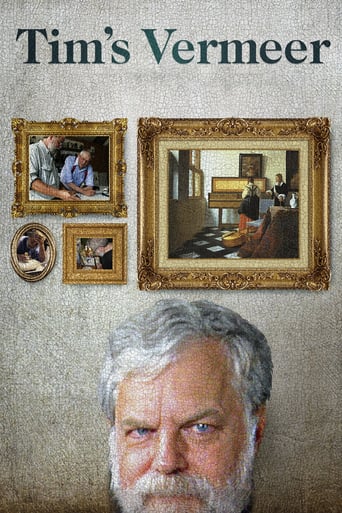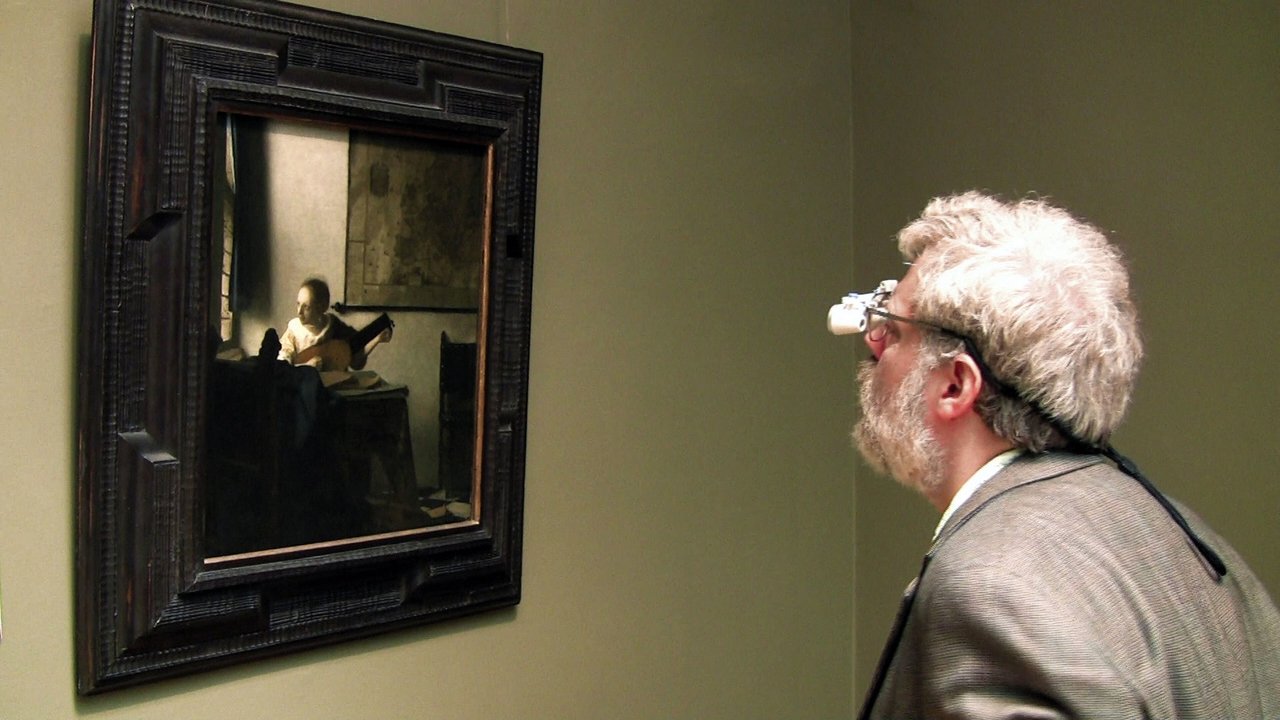TxMike
I found the DVD of this documentary sitting on the shelf of my local public library, just gathering dust. The brief description sounded very interesting so I brought it home and watched it. I recall maybe 30+ years ago visiting the New Orleans Museum of Modern Art, and seeing highly detailed old paintings and marveling at the artwork. Some may have been Vermeer, I don't recall.The subject is the 17th century Dutch painter Vermeer. His works are known for their realistic, almost "photographic" qualities. But photography as we know it had not been invented yet. But the camera obscura was well know.This caught the attention of inventor and wealthy Tim Jenison who had founded a company dealing in such things as video, broadcast graphics, special effects, and those sorts of things. He became interested in this subject and pursued it for several years. He first tried using a camera obscura directly but it didn't work well.Not a painter himself, Jenison even went to Holland to see, study, and measure the room Vermeer had used for many of his paintings. Then back in San Antonio carefully built a replica in a warehouse. He devised a way to use optics and mirrors to allow him to see a scene and paint it on canvas. The documentary is not too long, under 90 minutes, and is pretty fascinating. There will never be any proof, there are no old accounts or letters relating to the technique Vermeer, but they make a very strong case for Vermeer having used some sort of technique like this, with lenses and mirrors, to create his highly accurate paintings with a photographic look, not only the images but also the lighting and shadings. It seems Vermeer was an early photographer, instead of film or digital imaging he captured detailed images with paint.
tindaleroad
This film has to get at least three stars because it does show some of Vermeer's lovely paintings, if only momentarily and in close-up. Apart from that it seems to be a film about a guy who thinks that Vermeer used mirrors/machines to get his paintings so lifelike. Really? What about all those other lifelike painters. Durer, Holbein, Ingres, Velasquez .... the list could go for ages. He seems to know absolutely nothing about art. The fact that Vermeer did not use pencil or other sketches on the canvas, before putting on the paint, means nothing at all. Plenty of painters use oil paint heavily diluted. Anyway, perhaps it is all saved in the last half. Perhaps there is new evidence, wonderful arguments, wit and brilliance. I wouldn't know. By then I was fast asleep.
kalibeans
I am writing this review purely to say "thank you" to all involved in the making of this documentary. 80 of the best spent minutes of my time recently! To Tim Jenison - What a visionary to solve this puzzle and the generosity to share it with the world. To Penn and Teller - For seeing Tim's project as the incredibly fascinating subject it is and taking the time to document it and share it with us. I know nothing at all about art or invention, but that is not necessary to appreciate the brilliance and patience of this project. An incredible lesson as well for this "want it in an instant" world of the pleasure, benefits and wonderment of taking the time to think and create. Excellent, first class documentary!!
sandover
Funny how the question of genius still preoccupies us; what is that untouchable quality that makes one a genius? Not funny how the usual answer our era gives to that question is some kind of how - not who - dunnit, that actually masquerades what one can well call the traumatic quality of genius, by transforming it into some kind of expertise, aggressive projection of idealizations, and, eventually, a bland denial that the question of genius even exists.I consider "Tim"'s approach actually loathsome; from the initial premise that had some kind of frisson, the mystery is violated by his bland need to be the smartest boy in the room, in that pal manner bosses have to intimidate their employees.There is no sense of recognition, or even of absurd rivalry (Salvador Dali excelled in that when confronting Vermeer), just a nerd's resentment (at least Mr. Hockney has some smaller talent's resentment in order to prove reductive persuasions about painting)that totally blinds him to the dimension of art as such, or when encountered in the deft, sublime brushwork, let alone simpler facts like one cannot strike the same pose for months, especially when the portraits demonstrate such spontaneity and transience.As it is, the film reads more like a bad omen for cognitivism: what claim humanity had in the once sublime, je ne sais quoi quality of art, it returns as a repressed artless invention, as in the reduction of language - that is essentially poetry - to some elaborate chemicals juicing the brain; or like articles one reads nowadays that promote sex as good for blood circulation and even muscle development; that urge french kissing so that when one grows old will escape drooling. And that is depressing. There is no pleasure in it.



 AD
AD




